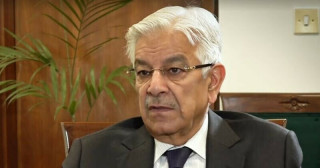Bani Adam
Senator (1k+ posts)
Sergey Brin's $330,000 stem cell burger doesn't wow taste testers
By Maria Cheng Associated Press Posted:08/05/2013 09 12 AM PDT | Updated: about 12 hours ago

A new Cultured Beef Burger made from cultured beef grown in a laboratory from stem cells of cattle, is held by the man who developed the burger, Professor Mark Post of Netherland's Maastricht University, during a the world's first public tasting event for the food product in London, Monday Aug. 5, 2013. The stem-cell Beef burger cost some 250,000 euros (US$ 332,000) to produce.

A stem-cell Beef Burger made from cultured beef grown in a laboratory from stem cells of cattle, is cooked by chef Richard McGeown during the world's first public tasting event for the food product held in London, Monday Aug. 5, 2013.

Food Scientist Hanni Rutzler inspects a burger made from cultured beef grown in a laboratory from stem cells of cattle, which has been developed by Professor Mark Post of Maastricht University in the Netherlands, not pictured, during a the world's first public tasting event for the food product in London, Monday Aug. 5, 2013.

American author and journalist Josh Schonwald, tastes a burger made from cultured beef grown in a laboratory from stem cells of cattle during the world's first public tasting event for the new food product in London, Monday Aug. 5, 2013.
LONDON -- They bit, they chewed, but had hoped for more flavor.
Two volunteers who participated in the first public frying of hamburger grown in a lab said Monday that it had the texture of meat but was short of flavor because of the lack of fat.
Mark Post, whose team at Maastricht University in the Netherlands developed the burger, hopes that making meat in labs could eventually help feed the world and fight climate change. That goal is many years distant, at best.
Sergey Brin, a co-founder of Google, appeared on a video shown at the event and announced that he funded the 250,000-euro ($330,000) project because of his concern for animal welfare.
"I would say it's close to meat. I miss the salt and pepper," said Austrian nutritionist Hanni Ruetzler, one of the volunteer tasters. Both shunned the bun and sliced tomatoes to concentrate on the meat.
"The absence is the fat, it's a leanness to it, but the bite feels like a conventional hamburger," said U.S. journalist Josh Schonwald. He added that he had rarely tasted a hambuger, as he did on Monday, "without ketchup or onions or jalapenos or bacon."
Monday's taste test, coming after five years of research, is a key step toward making lab meat a culinary phenomenon. Post called it "a good start."
Brin expressed high hopes for the technology.
"We're trying to create the first cultured beef hamburger. From there I'm optimistic we can really scale by leaps and bounds," he said on the video.
Post said it's crucial that the burger has the "look, feel and taste like the real thing."
Despite the tasters' concern about flavor, scientists say that can be tweaked.
"Taste is the least (important) problem since this could be controlled by letting some of the stem cells develop into fat cells," said Stig Omholt, director of biotechnology at the Norwegian University of Life Sciences. Adding fat to the burgers this way would probably be healthier than getting it from naturally chunky cows, Omholt said before Monday's test. He was not involved in the project.
Post and colleagues made the meat from the muscle cells of two organic cows. The cells were put into a nutrient solution to help them develop into muscle tissue, growing into small strands of meat.
It took nearly 20,000 strands to make a single 140-gram (5-ounce) patty, which for Monday's taste test was seasoned with salt, egg powder, breadcrumbs, red beet juice and saffron.
http://www.mercurynews.com/nation-w...ns-330-000-stem-cell-burger-doesnt?source=rss
By Maria Cheng Associated Press Posted:08/05/2013 09 12 AM PDT | Updated: about 12 hours ago
A new Cultured Beef Burger made from cultured beef grown in a laboratory from stem cells of cattle, is held by the man who developed the burger, Professor Mark Post of Netherland's Maastricht University, during a the world's first public tasting event for the food product in London, Monday Aug. 5, 2013. The stem-cell Beef burger cost some 250,000 euros (US$ 332,000) to produce.
A stem-cell Beef Burger made from cultured beef grown in a laboratory from stem cells of cattle, is cooked by chef Richard McGeown during the world's first public tasting event for the food product held in London, Monday Aug. 5, 2013.
Food Scientist Hanni Rutzler inspects a burger made from cultured beef grown in a laboratory from stem cells of cattle, which has been developed by Professor Mark Post of Maastricht University in the Netherlands, not pictured, during a the world's first public tasting event for the food product in London, Monday Aug. 5, 2013.
American author and journalist Josh Schonwald, tastes a burger made from cultured beef grown in a laboratory from stem cells of cattle during the world's first public tasting event for the new food product in London, Monday Aug. 5, 2013.
LONDON -- They bit, they chewed, but had hoped for more flavor.
Two volunteers who participated in the first public frying of hamburger grown in a lab said Monday that it had the texture of meat but was short of flavor because of the lack of fat.
Mark Post, whose team at Maastricht University in the Netherlands developed the burger, hopes that making meat in labs could eventually help feed the world and fight climate change. That goal is many years distant, at best.
Sergey Brin, a co-founder of Google, appeared on a video shown at the event and announced that he funded the 250,000-euro ($330,000) project because of his concern for animal welfare.
"I would say it's close to meat. I miss the salt and pepper," said Austrian nutritionist Hanni Ruetzler, one of the volunteer tasters. Both shunned the bun and sliced tomatoes to concentrate on the meat.
"The absence is the fat, it's a leanness to it, but the bite feels like a conventional hamburger," said U.S. journalist Josh Schonwald. He added that he had rarely tasted a hambuger, as he did on Monday, "without ketchup or onions or jalapenos or bacon."
Monday's taste test, coming after five years of research, is a key step toward making lab meat a culinary phenomenon. Post called it "a good start."
Brin expressed high hopes for the technology.
"We're trying to create the first cultured beef hamburger. From there I'm optimistic we can really scale by leaps and bounds," he said on the video.
Post said it's crucial that the burger has the "look, feel and taste like the real thing."
Despite the tasters' concern about flavor, scientists say that can be tweaked.
"Taste is the least (important) problem since this could be controlled by letting some of the stem cells develop into fat cells," said Stig Omholt, director of biotechnology at the Norwegian University of Life Sciences. Adding fat to the burgers this way would probably be healthier than getting it from naturally chunky cows, Omholt said before Monday's test. He was not involved in the project.
Post and colleagues made the meat from the muscle cells of two organic cows. The cells were put into a nutrient solution to help them develop into muscle tissue, growing into small strands of meat.
It took nearly 20,000 strands to make a single 140-gram (5-ounce) patty, which for Monday's taste test was seasoned with salt, egg powder, breadcrumbs, red beet juice and saffron.
http://www.mercurynews.com/nation-w...ns-330-000-stem-cell-burger-doesnt?source=rss






































